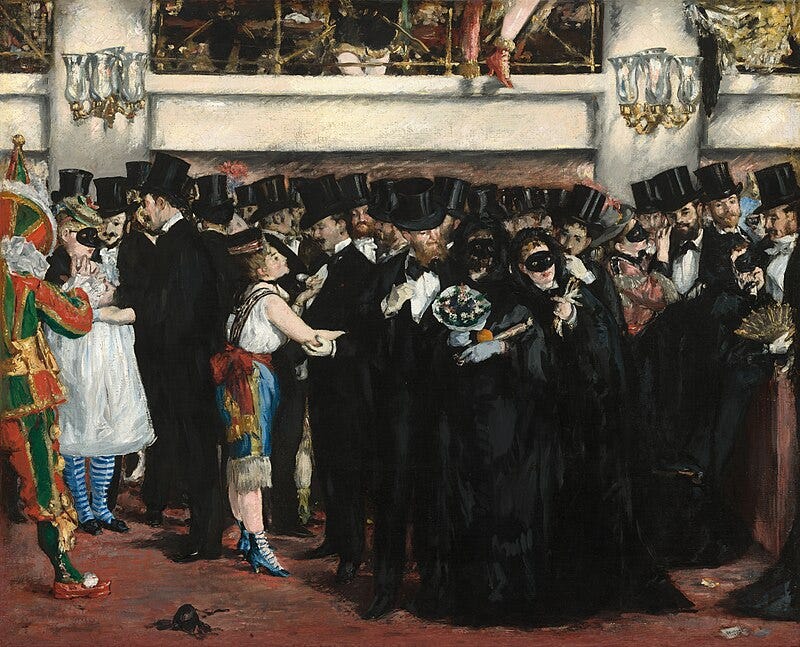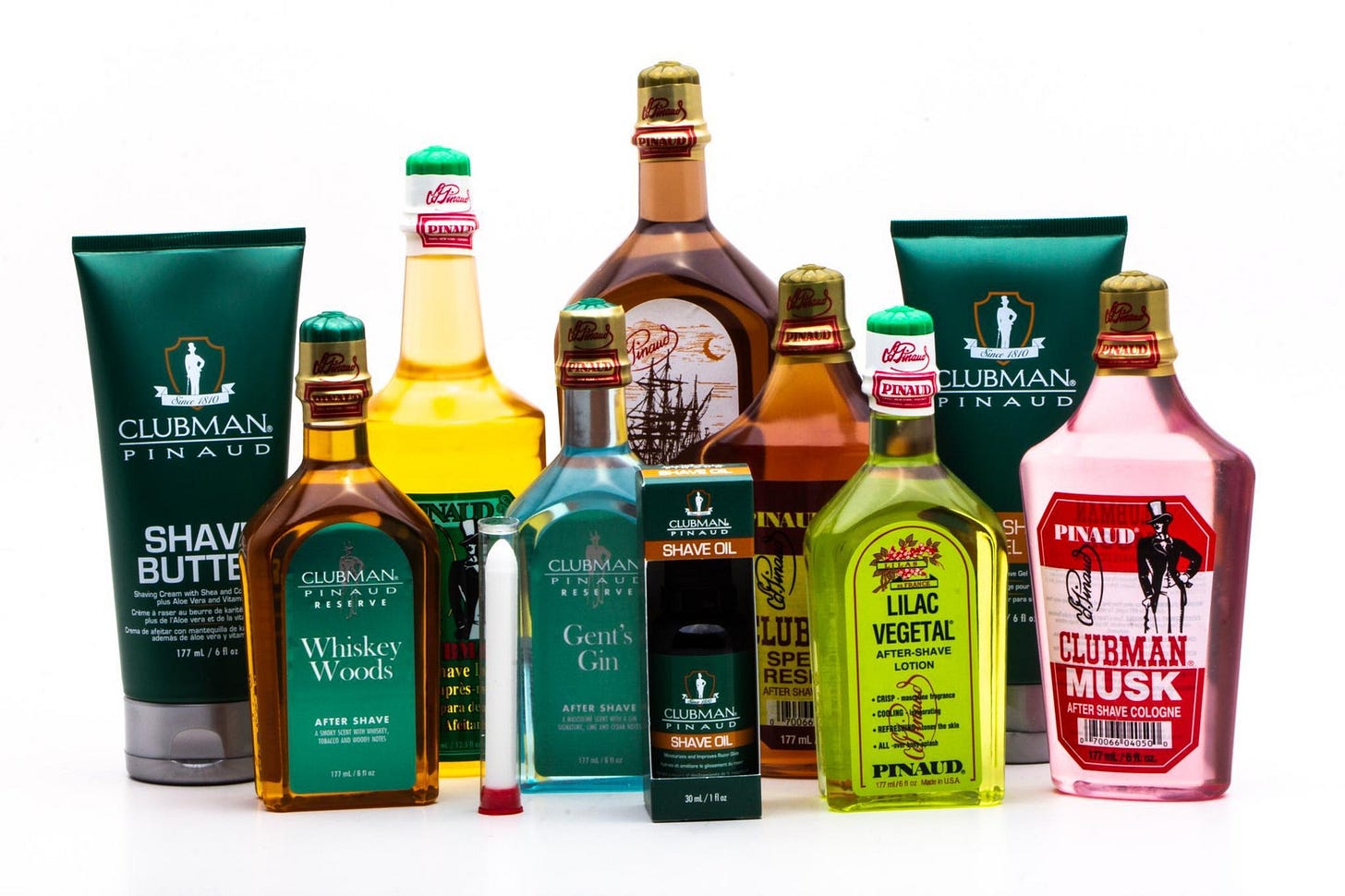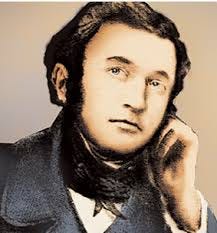Saturday Night Club

Days await the final pour of the season for my Manhattan club. We make it seem so dramatic, don’t we. It’s simply an entire month-long break offered to the staff of the Club who rarely have extended holiday periods, especially since we’re open on Thanksgiving and throw one of the best New Year’s Eve parties in the city.
But, this leaves one to wonder: what will I do with the extra time, but no third place?
H.L. Mencken, or the Sage of Baltimore, had an answer to this in the “Saturday Night Club”, which was brought to the modern era by the historical association that preserves his home. Yours truly explains further in this issue.
Ishaan Jajodia brings some insights on a topic that I’m sure you’ve been curious about after a few martinis: club toiletries. Why does every fine Club have the same brand of powder, hair combs and pomade?
Dispatches from Clubland are brought to you by Ishaan Jajodia.—LR
The Clubman behind Clubman Pinaud
By: Ishaan Jajodia
If you’ve ever walked into a club locker room and found the same old set of toiletries—particularly aftershave, hair tonic, and talcum powder, with a dandy-like frenchman standing with a slight twist in his hips and a cane, and wondered what it was all about, you’ve come to the right place.
Clubman Pinaud is perhaps one of the few things in clubland that owes its descent not to the British, but, rather, to the French. Founded by Édouard Pinaud (1810–68), who hailed from Abbeville, in the north of France, Clubman began as a Parisian perfumery in 1830.
By the time the 1855 Paris Exposition rolled around, Pinaud found himself as one of Paris’ premier perfumers, and, having sufficiently impressed Queen Victoria, earned a royal warrant to supply perfume to the house of Windsor. The French emperor Napoleon III followed not too long after, and Pinaud became the perfumer to English and French royalty.
While Pinaud first sold his products in the United States in the mid-1840s, as evidenced by an ad in the Hartford Courant of Hartford, Connecticut, by the 1870s Pinaud established himself in New York City with offices and an agent.
Pinaud’s eponymous products are so successful that in 1903, the firm built an eleven-story American headquarters a block away from Union Square in Manhattan, right on Fifth Avenue and Fourteenth Street, now home to the School of Visual Arts. Today, Clubman Pinaud is owned by American International Industries, a cosmetics manufacturer based out of Commerce, California.
Don’t have plans? Become the best invite in town
By: Leonard Robinson

Hollywood producer Rob Long was the executive producer for Cheers, but he wrote (and probably forgot) titled, “The life of the party”. Long, in this article, shares the best advice for anyone desperate to expand their social circle: throw a damn good party first, friends will come second.
“Years ago, when an older friend of mine moved to New York City from Iowa, his sophisticated man-about-town uncle gave him some advice. “Within the first six months of your arrival,” his uncle told him, “throw a party,” Long writes. “After six months in the city, the uncle reasoned, my friend would have met enough people to fill his apartment during the cocktail party hours of 5 and 8 o’clock. His uncle told him that the key to being invited to parties is to throw parties, and the whole point of living in New York was to be invited to parties, so don’t waste any time in throwing your first bash.”
There’s no reason that this claim cannot be adapted even further to the world of Clubland.
This brings about a new rule: pick one Saturday night per year (preferably when the Club is closed or the staff should truly be going home early) and build a Saturday Night Club at your home.
One need not to bring out the bells and whistles. Members of your Club have seen you at your best and your worst and, if they haven’t, are more interested in getting to know you than your silverware.
If your interest is musical, acquire tickets to a musical performance and dinner and cocktails beforehand. At my club, a member who opted out of an annual vacation did this and I’m almost certain that he hasn’t paid for a drink in the Club for months.
Perhaps, you truly enjoy an old fashioned cocktail party. Find a dish that can easily be made for double the amount of people that you’re expecting, acquire a mix of savory and sweet snacks and enough alcoholic and non-alcoholic beverages for cocktails, mocktails, and everything in between.
To continue reading, please click here.
Dispatches from Clubland
Off court, into the boardroom: Spencer Lovejoy, who at his highest ranked was 64 in the world on the professional squash tour, announced his retirement from the professional squash tour to take on the mantle of the CEO of the National Squash League. Cubland USA earlier this year had the privilege of watching a match live in New York City. Lovejoy was also captain of the Yale Squash team and won the Skillman Sportsmanship Award, the College Squash Association’s premier award for collegiate players. We wish him all the very best and look forward to returning to watch NSL games throughout the country.
Disharmony at the Harmonie: Word on club row is that the Harmonie Club in New York City is on the hunt for a general manager. Davina Weinstein, the Harmonie’s current general manager, was the first female general manager of a New York City club, and began her traipse across Clubland at the Harvard Club of Boston, followed by the College Club of Boston, and the Union Club of New York.
In Memoriam: Sunny Chu, the president of the Yale Club of New York City, passed away on Saturday, July 26, in what an e-mail missive from the club said was a “sudden loss”. Chu, a member of the Yale College Class of 1997, went on to attend Harvard Law School, and served as a seasoned investment and private equity manager. Clubland USA offers its condolences.


